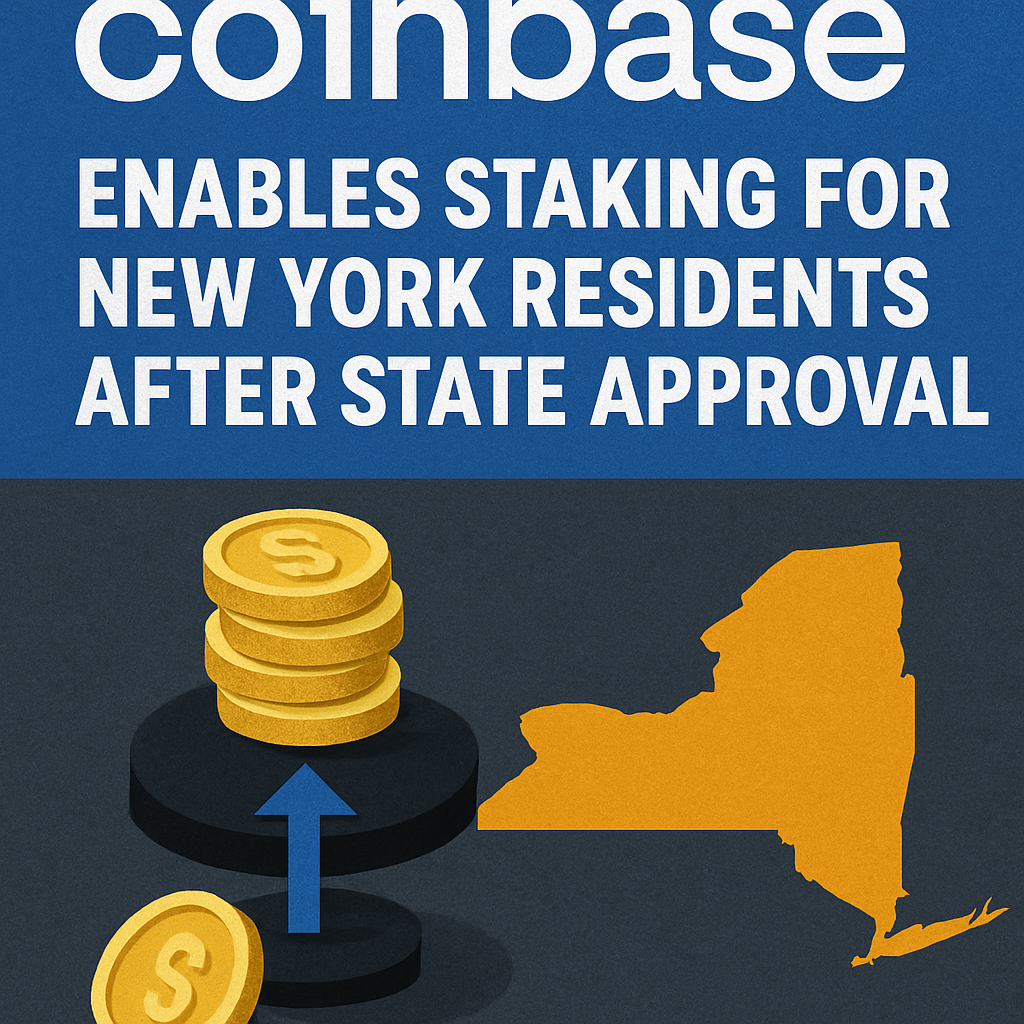On October 8, 2025, the New York Department of Financial Services granted approval for crypto staking services provided by Coinbase Trust Company. New York residents can now delegate digital assets such as Ether (ETH) and Solana (SOL) to network validators and earn protocol rewards directly through the Coinbase platform. The state regulator’s ruling follows a detailed review of operational controls and custodial safeguards implemented by the trust company under its qualified custodian charter.
Coinbase had previously paused staking services in several US jurisdictions in response to regulatory actions alleging that staking products could be deemed unregistered securities. In early 2023, ten states including South Carolina, Alabama, Kentucky, Vermont and Illinois filed lawsuits against the exchange. After state authorities dropped those cases this year and the SEC dismissed a federal complaint in February 2025, the pathway cleared for restoring staking in regulated markets.
The staking service in New York is built on top of Coinbase’s existing cold storage infrastructure. Each asset deposited for staking is held in FDIC-insured accounts under master custodial agreements, while validator nodes operate under an audited control framework. Rewards distribution employs a net-settlement model, automatically reinvesting a portion into additional protocol staking and crediting the remainder to user accounts daily.
Industry observers note that unlocking staking rewards for New Yorkers could mobilize hundreds of millions in locked assets. Estimates suggest that residents in states with paused services—California, New Jersey, Maryland and Wisconsin—have forgone over $130 million in rewards since the 2023 suspensions. The restored service in New York may prompt Coinbase to petition additional state regulators to extend staking availability.
Coinbase announced plans to apply for a national trust charter with the Office of the Comptroller of the Currency later this year, aiming to establish a bridge between digital assets and traditional banking. The company projects that statewide approvals could roll out sequentially, with expansion to additional US markets in early 2026. Continued growth of staking infrastructure remains a strategic pillar for driving decentralized finance adoption nationwide.

Comments (0)